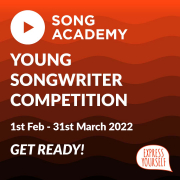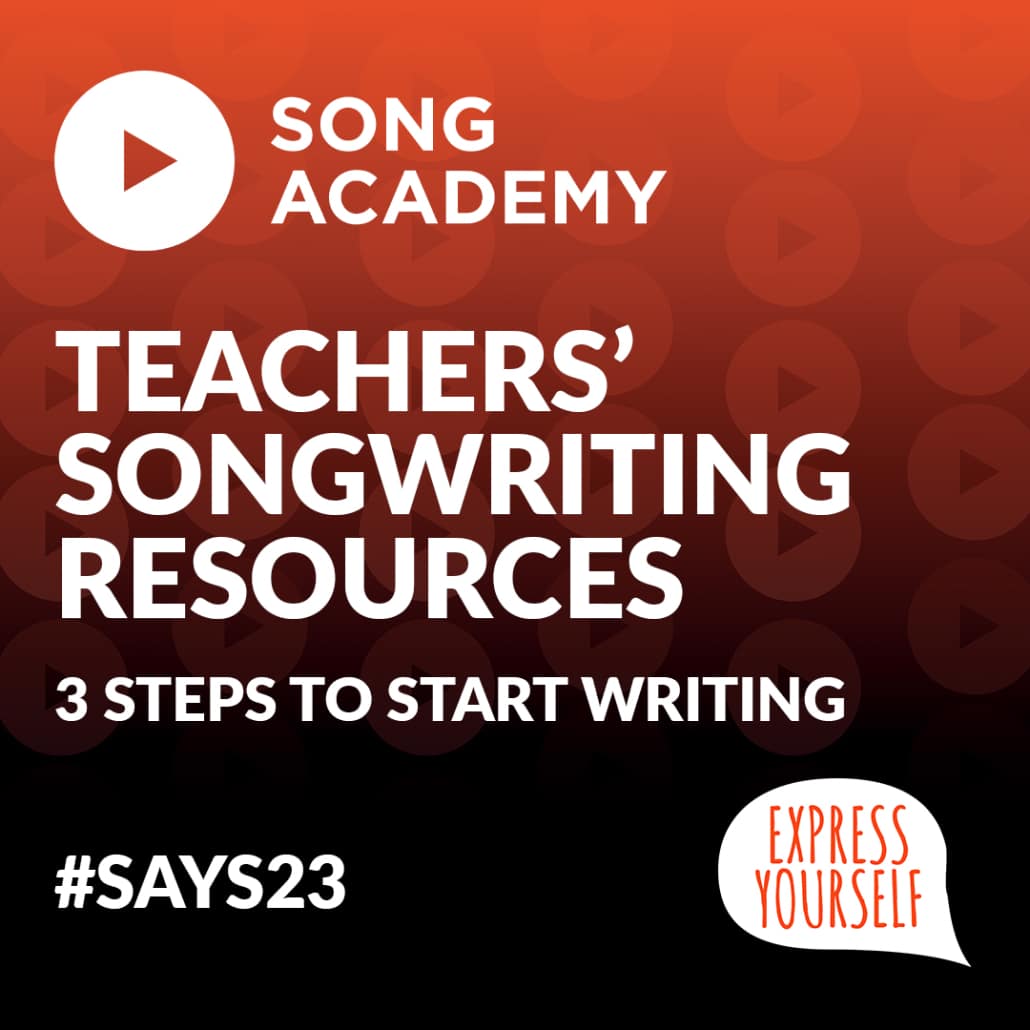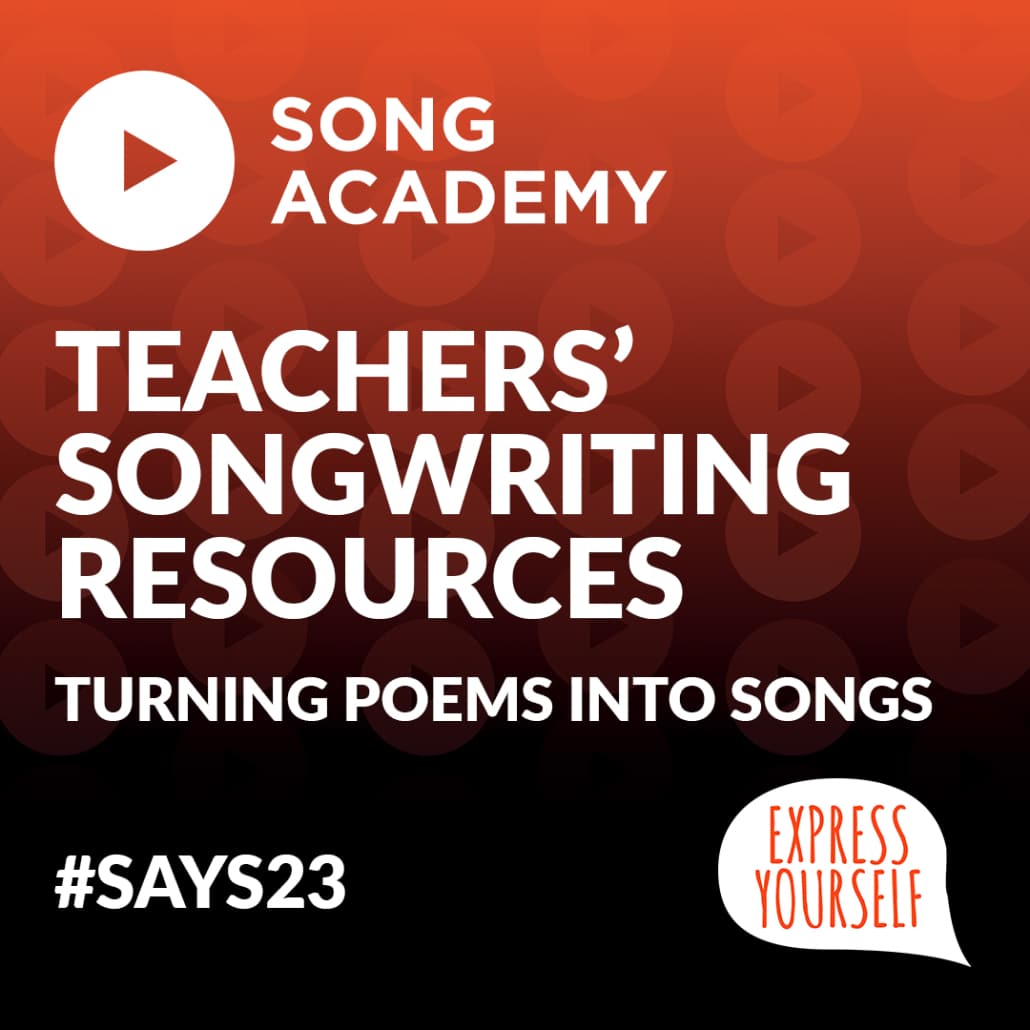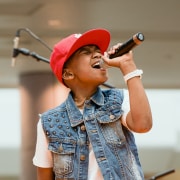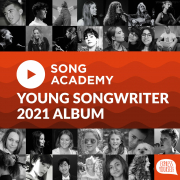Get to know the SAYS22 finalists in the UK/Ireland 8-12 year old category
This year’s Song Academy Young Songwriter competition attracted over 850 entries from aspiring young songwriters aged 8-18 across the world, both experienced young songwriters and those who’ve written their first song. The judges were extremely impressed with the originality, creativity & musical bravery of the songs.
We interviewed each of the finalists to get to know them and learn more about how they write songs. We’ll add more Q&As as we receive them. Stay tuned!
ANTHEM X – JOHN DENTON, 11 YEARS OLD
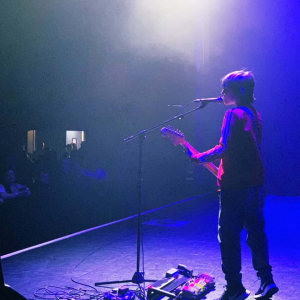
What got you into writing songs? When I started playing guitar I guess I wanted to give everything a try so I did.
What’s your favourite part of the songwriting process? Definitely when I’ve finished it and play it after because if it sounds great then the feeling you get makes you want to do it all again!
How do you usually start a song? How do you find that spark? I get a riff that I like, think of a melody, hum along to it and then write words.
Describe your setup that you used to write your #SAYS22 entry. I wrote it in my little songwriting book then put a tune to it on my guitar. I recorded it first and made my own mix using Soundcloud but then I went to a proper studio using the money I made from busking in Manchester.
Who would be your dream artist/writer/band to collaborate with? I love Johnny Marr so I’d like to collaborate with him. Other than that I like Blossoms, Sam Fender and the Courteeners.
What would you say to someone aged 8-18 who is thinking about entering the Song Academy Young Songwriter competition next year? Do you have any tips for them? Just go for it, you put your music on a bit of paper, then sing it and then share it with the world. Song Academy are amazing for running this competition which lets people like me share their music!
What are your favourite other entries from this year’s competition? Who out of the other entrants (it doesn’t have to be a finalist!) would you like to collaborate with? DSWRV has got an amazing sound which is so cool. I also liked Meg Curl and her song. Lastly, Woody Collins has got some great effects to his song, sounds a bit like Bowie! I’d like to collaborate with all of them and lots of others in all the categories.
What do you like about the Song Academy Young Songwriter competition? When I gig or busk, I just enjoy meeting other musicians and hearing other original music. I like the Song Academy gives a chance to kids like me to share their music.
FOMO – HOLLY DAIS, 12 YEARS OLD
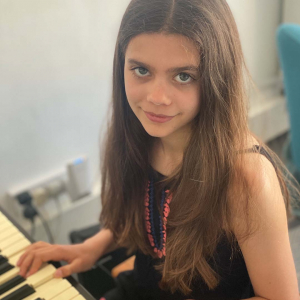
When I talked to other people, including adults I found out that lots of people feel the same as I did, worried about missing out on something, even if they don’t actually want to go!
Now I make the decision not to be on social media at all and I am not planning on having any social media accounts when I am legally able to on my next birthday. I want to live in the real world!
What got you into writing songs? During the first lockdown I learned how to play the piano using an app. In the second lockdown I started to pick out my own chords and tunes and I found that adding words to them came really naturally, before I knew what was happening, I realised I had written a song! After that, I couldn’t stop writing songs!
What does songwriting mean to you? Sometimes my head is full of feelings and worries and ideas. Songwriting gives me a way to get all of my thoughts out. A bit like writing a diary. Whether I am happy or sad, excited or scared once my feelings are made into a song I feel free.
What is your favourite part of the song writing process? I absolutely love every part of the process, from the initial chords and tune, to the words right through to the recording at the end.
How do you usually start a song? How do you find that spark? The spark is really like magic, I still don’t really understand how it works! If I am in the right frame of mind I just sit at the piano and I start playing around with chords and tunes. If it feels right then I start to hum a melody, imagining how the words will fit in. My mood usually leads the music; if I am angry, I might play a heavier tune, if I’m happy it might be more joyful. Once I am in ‘the zone’ the words flow, I scribble them down in my notebook and keep going over them until they are just right.
Describe your setup that you used to write your #SAY22 entry. I wrote FOMO on my own; just me and an electric piano. I worked throughout the summer holidays to earn enough money to spend a day in a recording studio. The recording studio is Momentum Studios run by Josiah J Manning, he produced the track and played the other instruments, whilst I played all piano parts and sang all lead and backing vocals.
Who would be your dream artist/writer/band to collaborate with? My hero is Taylor Swift and I would love to meet her! I love how she tells stories in her songs, and how she shares her feelings and her life with her listeners. It is amazing how she started with Country and has moved into Pop. It seems there is nothing that she can’t do!
What would you say to someone aged 8-18 who is thinking about entering the Song Academy Young Songwriter competition next year? Do you have any tips for them? Go for it! What have you got to lose?
What are your favourite other entries from this year’s competition? Who out of the other entrants (it doesn’t have to be a finalist!) would you like to collaborate with? They are all so amazing! My favourites are ‘Beautiful Stranger’ by Sambelle Prince, ‘Find A Place’ and by Nelly Rose Bingham and ‘Miracle’ by Georgia Taylor, I love the catchy tunes and stories.
What do you like about the Song Academy Young Songwriter competition? To me, the most wonderful thing about this competition is that real professional songwriters have taken the time to listen to and judge my song. They will know all the hard work that goes into writing a song. It is truly amazing that my song got picked against so many other incredible entries. Thank you SO much for this opportunity!
BUSTING THE HINGES – SPARROW DURHAM-LOVE, 10 YEARS OLD
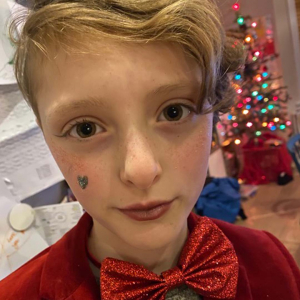
What got you into writing songs? Songwriting for me is about expressing to music what I see around me and what I feel.
What does songwriting mean to you? I was passionate to write my own song because a group of friends at school and I were entering this competition, but I felt that nobody was listening to my ideas, so I thought I would enter on my own!
What is your favourite part of the song writing process? I usually start with the words and then put music to it over a period of time.
Who would be your dream artist/writer/band to collaborate with? I would of course love to collaborate with Grace Vanderwaal but there are lots of other artists I would like to work with.
What would you say to someone aged 8-18 who is thinking about entering the Song Academy Young Songwriter competition next year? Do you have any tips for them? My advice to anyone entering the competition would be do it you own way.
What are your favourite other entries from this year’s competition? Who out of the other entrants (it doesn’t have to be a finalist!) would you like to collaborate with? I would love to collaborate with Uma Martin that is my favourite so far, I haven’t managed to listen to all of them YET!
What do you like about the Song Academy Young Songwriter competition? I love the way it has inspired all aged children to write music, such a great idea!
SOMETHING BIG – LEANNE JOAN FERNANDES, 11 YEARS OLD
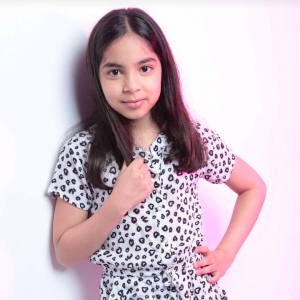
What got you into writing songs? I started by singing in the shower and said some random words and somehow formed a song. What really got me into songwriting is all the comments my family inspired me with. I used to and still do covers of other songs and usually send them to my family and hear the inspiring messages they send me.
What does songwriting mean to you? Songwriting means success to me because I feel I have the potential to write so many more songs in the future. It does let me express my thoughts and music always makes me happy.
What is your favourite part of the song writing process? My favourite bit is coming up with the lyrics. The method I use is to first write the lyrics and then come up with the tune, jamming up with my older brother who accompanies me with harmony and joining me in playing the keyboard or guitar to add some beats to our songs done together.
How do you usually start a song? How do you find that spark? To start the song, I come up with a set of lyrics and then record the composed tune I want. I first look for a topic to write on based on my thoughts and that is how I find the spark to my lyrics.
Describe your setup that you used to write your #SAYS22 entry. This was the first song I composed and was not made for the entry but for fun. But when I learnt of this competition I decided to enter it as felt it matched the criteria. For the recording, my dad recorded it on my mum’s phone, my mum was cooking in the background and my brother joined in to sing the harmony and play the guitar while I was singing the song.
Who would be your dream artist/writer/band to collaborate with? My dream artist to collaborate with is George Strait because he bases some of his songs on his life and that is what I did with ‘Something Big.’
What would you say to someone aged 8-18 who is thinking about entering the Song Academy Young Songwriter competition next year? Do you have any tips for them? I would tell them to keep going even if things don’t work out and I would also share my experience with them.
What are your favourite other entries from this year’s competition? Who out of the other entrants (it doesn’t have to be a finalist!) would you like to collaborate with? I don’t have a favourite as many are nice, but I enjoyed Chloe Turner’s song.
What do you like about the Song Academy Young Songwriter competition? I like that you were able to help young songwriters to strive for success in writing songs and thank you for this opportunity. My mum also did mention about the academy having courses which is very good to get some guidance to learn and improve in songwriting.
SUNSET, SUNRISE – CHLOE TURNER, 12 YEARS OLD
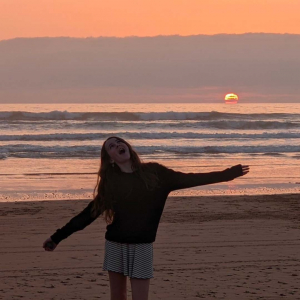
What got you into writing songs? I’ve always been into writing songs, I don’t know why but I do know that it’s a way I express myself
What does songwriting mean to you? Expressing feelings you have yourself or others may have.
What is your favourite part of the song writing process? When you are done and you have the best possible version of your song in front of you
How do you usually start a song? How do you find that spark? I’ll be doing anything and a tune just forms out my mouth and suddenly I guess I’m singing.
Describe your setup that you used to write your #SAY22 entry. I wrote the song on my messy desk throughout 2 days
Who would be your dream artist/writer/band to collaborate with? Probably Ariana Grande because she has got the sweetest voice ever.
What would you say to someone aged 8-18 who is thinking about entering the Song Academy Young Songwriter competition next year? Do you have any tips for them? My tips would be to write from the heart to make the song really you and go over multiple times to improve on what you’ve done.
What are your favourite other entries from this year’s competition? Who out of the other entrants (it doesn’t have to be a finalist!) would you like to collaborate with? FOMO – Holly Dais
What do you like about the Song Academy Young Songwriter competition? it’s a very fun experience to write a song and to see my name and my song on the 30 finalists.
IN-BETWEEN – TIMI HUGHES, 12 YEARS OLD
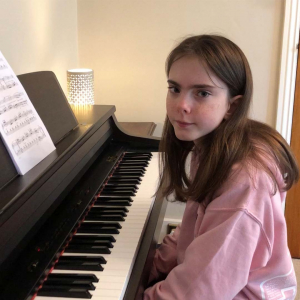
What got you into writing songs? I first started composing songs during lockdown. One of my favourite lessons during homeschooling was when our music teacher asked us to record an audiobook and create the sound effects using things we had at home. I recorded myself reading the Giant Jam Sandwich by John Vernon Lord, experimented with different sound effects to bring the story to life, and then composed a theme tune to accompany the recording on my piano. It was so much fun! Before that, I’d only ever played other people’s music. I didn’t really know what I was doing so I just experimented with what I thought sounded good, and fortunately, it turned out ok.
What’s your favourite part of the songwriting process? I love experimenting on my piano and coming up with my own ideas and tunes. I love the creativity involved, and I know that whenever I’ve had a bad day, I can sit at my piano and play. I’m the only musical person in my family, so fortunately there’s never any competition for the piano! I love hearing it all come together at the end!
How do you usually start a song? How do you find that spark? I find most of my inspiration comes from things other people have said – such as my friend at school saying she still watches Peppa Pig when she’s bored! I then try to turn that into a rhyme that I can later put to music. In this particular song, a small part of the melody for the chorus was actually inspired by the Peppa Pig theme tune – if you listen carefully to the line “still watch Peppa Pig when I’m bored” you can hopefully hear that it sounds a little like the second half of the Peppa Pig theme, albeit with a different rhythm and tempo.
Describe your setup that you used to write your #SAYS22 entry. I wrote the lyrics first and then just tinkered on the piano until I had a melody that I thought worked. I then recorded myself playing on the piano and singing using GarageBand on my computer.
Who would be your dream artist/writer/band to collaborate with? I love musical theatre, so if he were still alive, then definitely Stephen Sondheim. I love how clever and poetic his lyrics are. I would also like to collaborate with Richie Webb, who composes all the songs for Horrible Histories. It’s my favourite TV programme and I’d absolutely love to write songs for a show like that.
What would you say to someone aged 8-18 who is thinking about entering the Song Academy Young Songwriter competition next year? Do you have any tips for them? Just go for it. I didn’t expect my song to make it into the finals, which just goes to show that we’re not always able to judge the quality of our own songs.
What are your favourite other entries from this year’s competition? Who out of the other entrants (it doesn’t have to be a finalist!) would you like to collaborate with? I absolutely love Twayn’s song “Sweet 16” in the 13-18 age category. It’s on a similar theme to mine in that my song is about being 12 and wondering what it’s like to be 16, whereas theirs is about actually being 16. But more than that, I just really like the song. The lead singer has got an amazing voice.
What do you like about the Song Academy Young Songwriter competition? It’s such a great opportunity to have our songs listened to by people other than our friends and family! As I say, I didn’t expect to do very well in the competition and it’s an honour to have been chosen as a finalist, especially considering the quality of some of the other songs.
PATCH IT UP – ROMY, 12 YEARS OLD
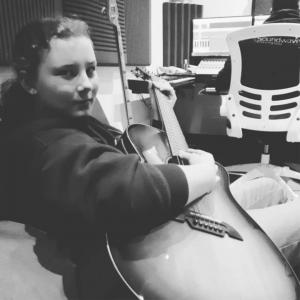
What got you into writing songs? When I was very young I had a little guitar and I used to make up songs. They probably didn’t really make any sense at all! One day, when I was 5, I asked my teacher if I could play one to her. I’d seen her singing and playing her guitar in an assembly and wanted to be able to do what she did. I guess she inspired me to play. After I’d learned to play the guitar properly I found it made things easier for me to write songs because the music and the words come to me often at the same time. I’ve written a lot of songs now and I enjoy performing them live.
What does songwriting mean to you? I’ve always enjoyed reading, and poetry, so when I write my songs I like to tell a story. Songwriting makes me feel happy! I love it when I play one of my songs and people ask me who wrote it? Who’s song it is. Today I went busking to raise money for a charity I support, I played ‘Patch it up’ and a young girl asked if it was a Taylor Swift song! That MADE my day! When I am singing my songs and performing, I feel like that’s the real me.
What is your favourite part of the song writing process? Finishing it and performing it! Some songs come to me very quickly, they just fall out of my head. I like performing my songs as I get a real buzz from that.
How do you usually start a song, How do you find that spark? Often I think of a catchy hook and then build the rest of the song around it. Other times I just have a bunch of chords in my head that are catchy and build a song around them. I know when my songs are catchy as I can hear my family walking around the house singing them! My brain is always in songwriting mode which can be exhausting at times. Words and music go around and around in my head. This can be really distracting and inconvenient. I have to write things down as soon as they come to me.
Describe your set up that you used to write your #SAYS22 entry. Just me and my guitar, I was 11 when I wrote this song and had been playing it for a while. Towards the end of last year I wanted to try and get some good recordings of some of my songs so that I could send them into the local radio station. So I went to a local recording studio. We recorded Patch it up live, in one take. I’d had a baseline in my head which I wanted to add and so Paul at the studio added that for me over my track.
Who would be your dream artist/writer/band to collaborate with. Absolutely, top of my list would be Freddie Mercury and Queen because he was an amazing singer songwriter! His songs were all so different and unique, and he was an amazing performer! But in second place would be Ed Sheeran! But only because no one beats Freddie!
What made you enter #SAYS22 and how did you hear about it? My mum had seen it advertised on Facebook but was unsure whether it was genuine competition. But then my music teacher at school mentioned it to me and then we knew it was good to go! I’m so glad I entered now!
What would you say to someone aged 8-18 who is thinking about entering the Song Academy young songwriter competition next year? Definitely do it. If you’ve written a song and you like it, enter it…because you never know!
Who are your favourite other entries from this year’s competition? Who out of the other entrants, (it doesn’t have to be a finalist) would you collaborate with? Probably Uma Martin who wrote ‘Fried’ because I like how her song flows and my favourite line is ‘My brain is fried like a fried egg’. Also I liked the simplicity of the song, I liked her style and it reminded me of how I play my songs with just me and my guitar.
What do you like about the Song Academy Young Songwriter competition? I like the idea that you are giving young people in music a chance to share their songs with people in the music industry.
TAKE ME TO THE STARS – JOSEPH DAVIS, 12 YEARS OLD
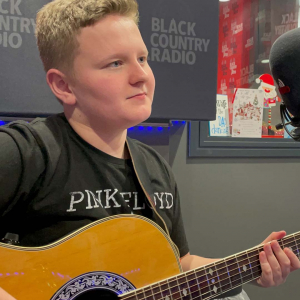
What got you into writing songs? I started playing guitar about 5 years ago and I loved writing little songs as well as learning other people’s songs and it felt natural playing around with different chords and shapes. Once I had a good base and a hook I just added, it either needed a melody or some words or both. I’ve been making up tunes since I was 3, although I don’t think I’ll be sharing those.
What does songwriting mean to you? It’s a great way to express creativity, you can let feelings or ideas come out that can’t be shown on paper.
What’s your favourite part of the songwriting process? It can be quite frustrating trying to find the right word or the right chord, but it’s so satisfying when it all comes together – especially when you play it for somebody and they enjoy it.
How do you usually start a song? I usually start off with a chord progression or a lick. I will grow the song until I get it somewhere where it feel like it needs words. I’ve got lots of musical ideas that need words adding to them.
Describe your set up that you used to write your #SAYS22 entry. Take Me To The Stars was recorded using Garageband on my iPad in my bedroom. I used an iRig 2 to get my electric guitar signal into the iPad. We bought a cheap USB mic a while ago and that was used for the vocals. We had to pray that a car wouldn’t disrupt the guitar solo. Once everything was coming together I kept playing it through our stereo downstairs to check it sounded okay at a decent volume through better speakers.
Who would be your dream artist/writer/band to collaborate with. I’d love to work with Brian May. I’ve been a massive Queen fan since I was small, and went to see Queen and Adam Lambert when I was 5. Of course, Brian is obsessed with Space too. Or James Taylor, he’s an absolute inspiration and I’m going to see him live in October.
What would you say to someone aged 8-18 who is thinking about entering the Song Academy young songwriter competition next year? Go for it as there’s nothing to lose. In terms of tips I always like to have the song almost finished before I start recording so I know where I’m going. Make sure you play it for other people and be ready to listen to what they think of it. It also really helps if you can play a little bit on another instrument – I play guitar, but I can play a little bit of keyboards and that really helps when you’re using things like Garageband.
What are your favourite other entries from this year’s competition? Who out of the other entrants, (it doesn’t have to be a finalist) would you collaborate with? I really like Noah Robertson’s entry – On The Run. His guitar work is great and the song really fits together well.
What do you like about the Song Academy Young Songwriter competition? The whole vibe of the competition is that it celebrates songwriting as a craft – even though it’s a competition it doesn’t feel like one , more a celebration of a common skill. It’s also great that it’s judged by people who write great songs and really understand the industry.
FRIED – UMA MARTIN, 12 YEARS OLD
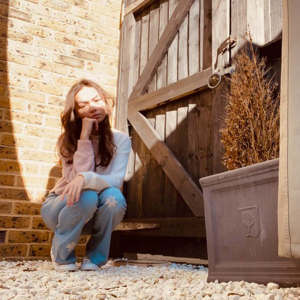
What got you into writing songs? A songwriting class in school 2 years ago started it all but I haven’t stopped writing since.
What does songwriting mean to you? It’s an opportunity for me to voice my thoughts, share my feelings and tell stories.
What is your favourite part of the song writing process? When the chords and the lyrics come together and create something special and meaningful to me.
How do you usually start a song? I just start playing different chords on my ukulele. How do you find that spark? I find the spark in the poems I write and the places I visit.
Describe your set up that you used to write your SAYS22 entry. In my room, just me and my ukulele.
Who would be your dream artist/writer/band to collaborate with? Olivia Rodrigo, Gracie Abrams, Taylor Swift and Billie Eilish.
What would you say to someone aged 8-18 who is thinking about entering the Song Academy Young Songwriter competition next year? Give it a shot! It’s a good opportunity to show your songwriting skills and creativity plus you get to know more about yourself in the process. Do you have any tips for them? Write about things you know, about things you find interesting and things you want people to talk about.
What are your favourite other entries from this year’s competition? I really enjoyed listening to Leona Mae’s Sold The Story and Cinta Aurelee’s Daisy
Who out of the other entrants (it doesn’t have to be a finalist) would you like to collaborate with? I’d like to collaborate with Leona Mae (Sold the Story), Max Kenworthy (Don’t Leave Me Now) and John Denton (Anthem X). If I could collaborate with a former SAYS Finalist, I’d love to work with Lexie Carroll.
What do you like about the Song Academy Young Songwriter competition? It’s a good platform for young songwriters like me to express ourselves and see how far we could go with our music. I also like that we are able to listen to the work of other songwriters our age and learn from them.
SPARK – ISLA HANNETT, 11 YEARS OLD
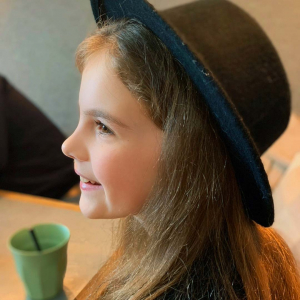
What got you into writing song? I would sing little melodies around the house and then one day I thought for fun I would sit at my piano and write a song. I guess since then writing songs has become part of me and I find it helps me through difficult times and allows me to celebrate the good.
What does songwriting mean to you? Songwriting means a lot to me – in fact I don’t know what I would do without being able to
get my thoughts out and my feelings down on paper and heard through melodies.
What is your favourite part of the song writing process? I love to see how my thoughts and feelings sound, through the melodies, words and instruments. I find the production part extremely fun layering up all the instruments and seeing my songs come to life.
How do you usually start a song? How do you find that spark? I usually have a strong feeling about something in my life or in the world that I want to express or explore and that begins the process of songwriting for me. As soon as I hear a
melody on the piano I feel excited and it flows from there.
Describe your setup that you used to write your #SAYS22 entry. It always starts at my piano, I will play around with chord progressions and see what works, the rhythm usually comes from the wording and together I blend the two. I then record into Soundtrap with the piano first, followed by my vocals and continue to develop the production from there.
Who would be your dream artist/writer/band to collaborate with? Olivia Rodrigo
What made you enter #SAYS22? How did you hear about it? I heard about the competition last year through The Week and enjoyed entering so much that I wanted to be part of it again. I also joined Song Academy and have been enjoying
developing my songwriting skills.
What would you say to someone aged 8-18 who is thinking about entering the Song Academy Young Songwriter competition next year? Do you have any tips for them? Give it a go! Write from the heart, be genuine, don’t just write lines that rhyme to fit a melody make them mean something to you and others.
What are your favourite other entries from this year’s competition? Who out of the other entrants (it doesn’t have to be a finalist!) would you like to collaborate with? I really enjoyed Uma Martins song, Fried, she is extremely talented, her song is catchy, quirky and I think I would really enjoy working with her.
What do you like about the Song Academy Young Songwriter competition? I love it all. The experience from start to finish, the achievement you feel, the excitement knowing your song has been enjoyed by others and being able to listen to other artists and learn from them. Thank you for recognising my song and giving me the chance to progress to the next stage of the competition, it really means a lot to me.
LINGO – MATTHEW ARKOH & BROTHERS, 8, 10 & 12 YEARS OLD
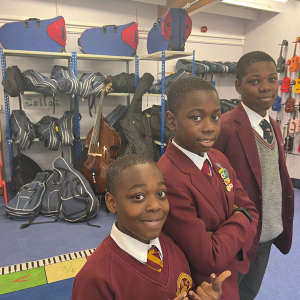
What got you into writing songs? During COVID, Matthew wanted to learn Happier, Oliver already knew how to play drums so then they became a band and started writing songs after that. They presented their songs to their parents, and they recorded it and sent it to family and friends.
What does song writing mean to you? It is very important to write the thoughts that come to you and it can help other people when they’re feeling sad, or even yourself.
What is your favourite part of the song writing process? Playing through the song together.
How do you usually start writing a song? How do you find that spark? In the living room, playing random tunes, finding a beat that works on the drums and singing along. A natural process.
Describe your setup that you used to write your #SAYS22 entry. Keyboard, drums and a singer, wrote the lyrics on an iPad. Recorded the first draft on dad’s phone and the submitted version on a portable audio recorder at school.
Who would be your dream artist/writer/band to collaborate with? Stormzy, Travis Greene for gospel songs, Anne-Marie from The Voice Kids, Santan Dave, Ed Sheeran and Marshmello.
What would you say to someone aged 8-18 who is thinking about entering the Song Academy Young Songwriter competition next year? Do you have any tips for them? I say go for it, when it comes to writing the song, write whatever comes to your mind, write it on a piece of paper, improvise.
What are your favourite other entries from this year’s competition? Who out of the other entrants (it doesn’t have to be a finalist!) would you like to collaborate with? Sambelle Prince, Sisi and Leona Mae.
What do you like about the Song Academy Young Songwriter competition? It gives people a chance to show their abilities in music and song writing.
OPPOSITE WAY – MAYA HELON, 12 YEARS OLD
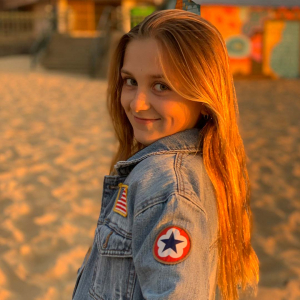
What got you into writing songs? I grew up in a very happy home and as a toddler I recall that my family were always listening to various genres in the house. This inspired me rhythmically and melodically. I would often dance around the house singing songs in Polish entertaining my Mom and Dad. This stirred an excitement in me to try my hand at telling stories through songwriting.
What does songwriting mean to you? Music is freeing in itself and songwriting gives me the opportunity to delve deeper into my own emotions without holding back. It is very therapeutic.
What is your favourite part of the song writing process? I really enjoy writing in metaphors. Being able to tell a story without using too many literal references is where I find the most creativity.
How do you usually start a song? How do you find that spark? I’ll often look around me. Sometimes everyday objects can inspire the most intricate lyrics.
Describe your setup that you used to write your #SAYS22 entry. I sat in a quiet room by an open window. I had my recording device (phone), my songwriting book and my singing coach accompanied me on acoustic guitar.
Who would be your dream artist/writer/band to collaborate with? Taylor Swift, Tom Odell, Ariana Grande and Sia.
What would you say to someone aged 8-18 who is thinking about entering the Song Academy Young Songwriter competition next year? Do you have any tips for them? Just go for it! Don’t hold back. There are so many things you can do and to have an opportunity such as this will only elevate you to become more of who you know yourself to be!
What are your favourite other entries from this year’s competition? Who out of the other entrants (it doesn’t have to be a finalist!) would you like to collaborate with? I really enjoyed listening to Boy by Summer Brennan as I could really tell that she had control over her voice and had lots of tonality. It inspires me to try and focus on how it could affect my singing if I controlled my voice a little more just like Summer. I also enjoyed listening to Atomic Bomb by Calista Harms as I liked the tonality in her voice and I think it would be intresting to see how both of our voices sound together as I see a few similarites within style and how we perform. I also believe that even our differences can affect our ideas and create something that people would love to listen to.
What do you like about the Song Academy Young Songwriter competition? It is inclusive to anyone who thinks they show potential in writing songs.
SET THE WORLD ON FIRE – RUBY MULHOLLAND, 12 YEARS OLD
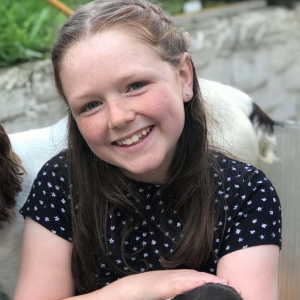
What got you into writing songs? My sister and I both play guitar and I love singing. A few years ago, I got a new notebook for Christmas and I sat down to write a story, but it sounded better as a song. I came up with a melody and my Uncle encouraged me to enter the song into Song Academy 2020. I was delighted to make it through to the final 10. This has inspired me to try and write some more.
What does songwriting mean to you? It’s a way to express my thoughts and feelings.
What is your favourite part of the songwriting process? I love creating a really strong chorus.
How do you usually start a song? How do you find that spark? It depends. Sometimes it starts with a melody. Or I think about something sad or happy in my life and put it into words. I always research famous quotations to inspire me.
Describe your set-up that you used to write your #SAYS22 entry. My daddy set up the guitar for my sister, the amp and mics in my living room. I sang, Molly played guitar and accompanied me on vocals. Mummy recorded it on her phone.
Who would be your dream artist/writer/band to collaborate with? I love Anne-Marie and Ed Sheeran. I also love a great band from Northern Ireland called Dea Matrona.
What would you say to someone aged 8-18 who is thinking about entering the Song Academy Young Songwriter competition next year? Do you have any tips for them? I would say, “just do it!” If you have written a song, it is a good idea to let people hear it and you never know what it could lead to!
Which other finalists would you like to collaborate with? Conor Marcus, because he is also from Northern Ireland and has entered songs over the last few years.
What do you like about the Song Academy Young Songwriter competition? It gives young songwriters the chance to have famous songwriters listen to their music!
FRANKIE IN THE HOUSE (SUPER COOL) – FRANKIE MEADES, 9 YEARS OLD
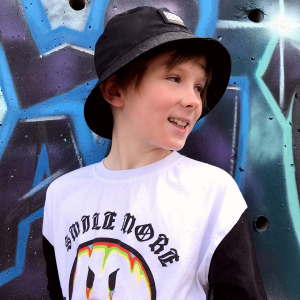
What got you into writing songs? I’ve loved music my whole life and last year when I was 8, I decided I wanted to start writing my own songs. This was after I met my neighbour Helen who overheard me singing last August. She’s a record producer and we first off did a Christmas cover and I was on the radio which was fun and then Helen asked if I’d ever thought about writing my own songs and I had a go. Frankie in the House is my first song. So it’s extra exciting to be a finalist.
What does songwriting mean to you? I don’t think it will be my job, I find it fun. If I’m older and I make songs and I am not famous I don’t really care, it’s for fun really.
What is your favourite part of the song writing process? My favourite part is the lyrics, I really like making up lyrics. When I was thinking of writing something I knew it didn’t all need to rhyme, but that it would be good if some of it did. And then I wanted to repeat some of the phrases so the song was easier to remember and more catchy. The music came after, when I was in the studio and I really liked picking the different loops we used for the backing.
How do you usually start a song? How do you find that spark? I’d been thinking about what I could write a song about and I wanted it to be about my life. It’s at the back of my mind all the time now and I have a lyric book to write my ideas down. At first I was nervous about writing words in case they weren’t any good then I was encouraged to just write anything and see what could be done with it. Which is what happened. I had the verse and the pre chorus when I went round to Helen’s and something she said made me come up with the chorus. It was all very quick.
Describe your setup that you used to write your #SAYS22 entry. I wrote down some words and then went over the road to Helen, and sang them to her. We only recorded the track once, and that was because Helen had set up the mic when I sang her the idea I had. She then had to work out the key and the beats per minute so we could add a backing. Which she helped me to do using Logic on her computer. There’s been no actual musical instruments used so far.
Who would be your dream artist/writer/band to collaborate with? Definitely Ariana Grande.
What would you say to someone aged 8-18 who is thinking about entering the Song Academy Young Songwriter competition next year? Do you have any tips for them? They should go for it, if they want to do it. No pressure if they don’t. If you think you’ve got a good song, you’ll know because you’ll vibe to it. Not be bored by it. As soon as I made my song I sent it to my friends and they all said it was amazing, that’s why I entered because Helen said it would be a good idea and my friends gave me confidence. But it doesn’t matter what anyone else thinks really. You won’t know if you don’t try. And I was amazed to get into the finals. And now I want to do more.
What are your favourite other entries from this year’s competition? Who out of the other entrants (it doesn’t have to be a finalist!) would you like to collaborate with? There were some great tracks and I listened to all the others in my category as I feel that it would be best to collaborate with someone around my own age. So these three artists were my favourites, Miracle by Georgia Taylor, Turn Back Time by Sylvie Hammersley-Fox and FOMO by Holly Dais.
What do you like about the Song Academy Young Songwriter competition? I like it because I know the people that are judging have written the lyrics of very famous songs that I love listening to. Just knowing they’re listening to my song is amazing. When we got the email I couldn’t believe it, I genuinely didn’t think I’d make it into the top 30. I didn’t even think I’d make it into the top 50! I am really happy about it.
PARADISE FALLS – FINN CRABTREE, 9 YEARS OLD
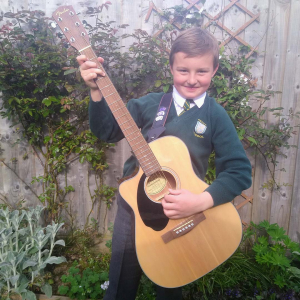
What got you into writing songs? I listen to songs anywhere normally and then one day I thought why can’t I be like them, writing songs? So, using my guitar skills I started to write my first song and then it turned out so well that I kept on making them.
What does songwriting mean to you? It means a lot to me, and it gives me a place to relax and feel the music.
What is your favourite part of the song writing process? I really like the lyrics because with notes or chords you cant’ bulk the song without description, so I like to be creative and come up with words that will fascinate people.
How do you usually start a song? How do you find that spark? You would think of what you want it to be like and you would keep throwing ideas at your page until you find something interesting.
Describe your setup that you used to write your #SAYS22 entry. Holding my guitar on my bed and in front of me was a window and I wrote the lyrics on the windowsill with a pencil and paper.
Who would be your dream artist/writer/band to collaborate with? Foofighters!! Because their music has a vast variety of music styles which I can get inspiration for my songs.
What would you say to someone aged 8-18 who is thinking about entering the Song Academy Young Songwriter competition next year? Do you have any tips for them? Give it a try! Not only you might win something, but it opens your musical taste, and you can build up to a potential music career. If one of your songs gets stuck in people’s heads it shows that it’s catchy and the judges might like it
What are your favourite other entries from this year’s competition? Who out of the other entrants (it doesn’t have to be a finalist!) would you like to collaborate with? My favourite song from the thirty finalists was Anthem X and I want to collaborate with John Dennon.
What do you like about the Song Academy Young Songwriter competition? I like how it’s a way of putting your songs worldwide and to have fun.
FIND YOU – FIRE FLIES (CAROLINA AND NATALIA), 10 & 11 YEARS OLD
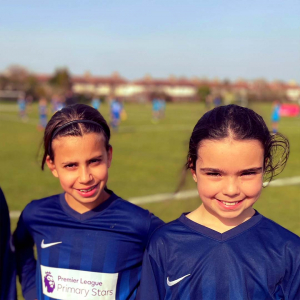
What got you into writing songs? Hearing songs on the radio inspired us, for we love having the joy of dancing to music and we wanted to create that joy in someone else’s life.
What does songwriting mean to you? Songwriting means to us that we can talk about important issues or current affairs in a way that is joyous and has a way of catching people thoughts.
What is your favourite part of the song writing process? Our favourite part is joining the lyrics to the melody. When this is done we can see our song unfold and all our hard work goes into play.
How do you usually start a song? How do you find that spark? We usually start a song by finding a theme of the words which then switches on our brains to our own opinions and thoughts. We then add a catchy melody and fierce high notes to really secure the balance of quality and the important message.
Describe your setup that you used to write your #SAYS22 entry. We spread out what we had to do in a course of days. Each day we made more and more progress focusing n different things each time. When we were in the end we were happy of hour achievement and the image of our song was going to create.
Who would be your dream artist/writer/band to collaborate with? Our favoUrite artist to collaborate with would be Camilla Cabello for the songs she sings are based on every day problems which we are trying to accomplish. She also had a particularly hard life before she was famous however she still came out on top.
What would you say to someone aged 8-18 who is thinking about entering the Song Academy Young Songwriter competition next year? Do you have any tips for them? We would definitely tell them to try, good talent shouldn’t go to waste. If they love to sing and dance even just instrumental talent the competition is a great way for them to express themselves in a friendly way. Our tip would be to always have someone there for support and don’t be afraid to try, if you don’t life wouldn’t be as exciting.
What are your favourite other entries from this year’s competition? Who out of the other entrants (it doesn’t have to be a finalist!) would you like to collaborate with? If we could our favorite artist to pick it would have to be the song don’t leave me from Max Kenworthy. This is for the song is upbeat and really just wants to make us dance. Her voice is incredible and her song has deep meaning. We would definitely love to collaborate with him.
What do you like about the Song Academy Young Songwriter competition? We like that it encourages to express ourselves where there is no pressure and we can do what we believe. I love that anyone can enter and the competition is completely fair.
DON’T LEAVE ME NOW – MAX KENWORTHY, 12 YEARS OLD
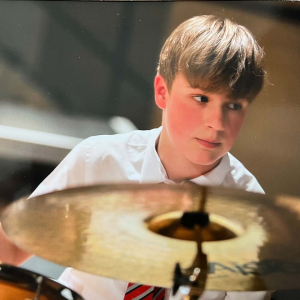
What got you into writing songs? I started when I was eight and was doing a songwriting club at school. I was really inspired and decided to start writing songs at home.
What does songwriting mean to you? Songwriting is for me a way of expressing how I feel without saying it and I love the variety of sounds on offer.
What is your favourite part of the song writing process? My favourite part of the songwriting process is producing my vocals and programming and creating sounds.
How do you usually start a song? How do you find that spark? I start a song with a chord progression either on piano or guitar and then improvise melodies until I find one I like.
Describe your setup that you used to write your #SAYS22 entry. My setup is a Mac running Logic, an old Korg N 5 synthesiser, an AKAI MPD218 ( a birthday present) and a shure SM7B microphone.
Who would be your dream artist/writer/band to collaborate with? My dream artist to collaborate with would be Charlie Puth because his songs are very creative and I love the way he talks about songwriting on TikTok and YouTube.
What would you say to someone aged 8-18 who is thinking about entering the Song Academy Young Songwriter competition next year? Do you have any tips for them? I would say to anyone thinking of entering next year that it’s a really good experience and you get helpful feedback on the song. There is also some publicity with being a finalist. A top tip would be to write loads of songs in different styles.
What are your favourite other entries from this year’s competition? Who out of the other entrants (it doesn’t have to be a finalist!) would you like to collaborate with? I enjoyed listening to many of the other songs. I thought Spark by Isla Hannett was very good and stood out.
What do you like about the Song Academy Young Songwriter competition? The competition is well organised and it’s good that they don’t focus on production but also focus on the actual song.
OUR SECRET HEAVEN – GRETA KILL, 11 YEARS OLD
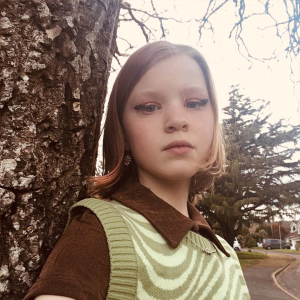
What got you into writing songs? I started loving music in general and wanted to try and make my own songs.
What does songwriting mean to you? It’s a way to express yourself with no rules.
What is your favourite part of the songwriting process? When an idea or word pops into my head and when I finish the song and get to sing it through.
How do you usually start a song ? How do you find that spark? I find a theme and usually establish a chorus, which is normally at the start of the song.
Describe your setup that you used to write your #SAYS22 entry. I found a bench at school lunchtime and started writing the song.
Who would be your dream artist/writer/band to collaborate with? My favourite writer is Taylor Swift because of her inspiring lyrics but since my voice is a similar style I would want to vary it and introduce a rapper to my songs like Lizzo
What would you say to someone aged 8-18 who is thinking about entering the Song Academy Young Songwriter competition next year? Do you have any tips for them? You should just go for it because it’s a fun challenge which stretches you.
What are your favourite other entries from this year’s competition? Who out of the other entrants (it doesn’t have to be a finalist!) would you like to collaborate with? After listening to them I really like Nelly Bingham’s song and would love to sing with her.
What do you like about the Song Academy Young Songwriter competition? I like how it’s got a large age range so lots of people can take part in it. Also its reminded me how much I love singing.
YOU NEVER LISTENED – MARTHA & THOMMY BAILEY VINE, 8 & 10 YEARS OLD
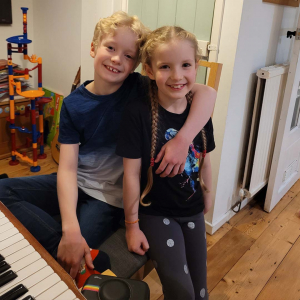
What got you into writing songs? Thommy: I like playing guitar and piano and have a passion for singing, so it seemed like the next natural step!
What does songwriting mean to you? Martha: It means I can tell stories in a song. Thommy: It means expressing my love for music and creating stuff.
What is your favourite part of the song writing process? Martha: Belting my voice out. Thommy: Recording the different tracks and building the song up.
How do you usually start a song? How do you find that spark? Thommy: I usually start by playing piano or guitar. When I need to find something to do I start a song! Martha: I start by singing a verse and writing it down. I start with a story.
Describe your setup that you used to write your #SAYS22 entry. Thommy on piano and Martha singing.
Who would be your dream artist/writer/band to collaborate with? Martha: Taylor Swift!! Thommy: Ed Sheeran or Olly Murs
What would you say to someone aged 8-18 who is thinking about entering the Song Academy Young Songwriter competition next year? Do you have any tips for them? Martha: Just go for it! Thommy: Believe in yourself; no matter where you get in the competition, you’re still amazing and I hope you do well.
What are your favourite other entries from this year’s competition? Who out of the other entrants (it doesn’t have to be a finalist!) would you like to collaborate with? Martha: Sparrow Durham-Love. Thommy: Holly Dais
What do you like about the Song Academy Young Songwriter competition? Thommy: It’s an opportunity for young people to show their emotions and ability, and I like listening to other entries because everyone is unique and special. Martha: I like that other people can listen to our song.
MIRACLE – GEORGIA TAYLOR, 11 YEARS OLD
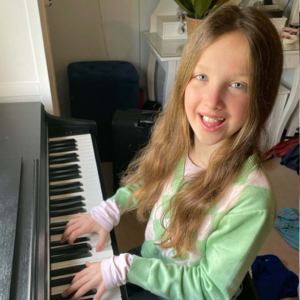
What got you into writing songs? Since I was very young, probably around 4 onwards I was constantly singing around the house. At 7 I got my digital piano and I realised I connected with singing and writing songs straight away. I have since become determined to be a singer/songwriter.
What does song writing mean to you? As you grow up you start to feel lots of emotions, some you don‘t understand and song writing helps me feel better about how I’m feeling.
What is your favourite part of the song writing process? I really enjoy finding the perfect chords, I’m also constantly writing ideas and lyrics down in my song writing journal.
How do you usually start a song? How do you find that spark? I experiment with chords and different melodies on the piano and then the tune starts to come into my head and I start humming it, it then quickly builds from there. I can lose myself for hours creating and experimenting.
Describe your setup that you used to write your #SAYS22 entry. Just me, my digital piano and a voice recording app on an iPhone.
Who would be your dream artist/writer/band to collaborate with? I really like Taylor Swift and Adele as their music expresses their emotions and it’s clear what they are feeling when they wrote the song.
What would you say to someone aged 8-18 who is thinking about entering the Song Academy Young Songwriter competition next year? Do you have any tips for them? You only have one life, live it to the fullest and just keep dreaming. Don’t be afraid.
What are your favourite other entries from this year’s competition? Who out of the other entrants (it doesn’t have to be a finalist!) would you like to collaborate with? I love songs where you can feel the emotion coming through and two songs that do that are FOMO by Holly Dais and Beautiful Stranger by Sambelle Prince.
What do you like about the Song Academy Young Songwriter competition? It’s open to everyone, it really shows how much talent there is and this allows them to have the spotlight and shine
FIRE HEART – MIDNIGHT STARZ, 10 & 11 YEARS OLD
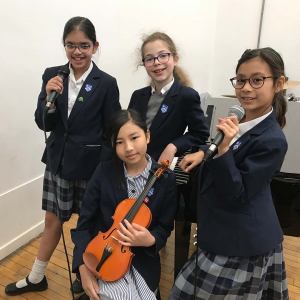
What got you into writing songs? We are from Latymer Prep School and when we found out about this song writing competition, we thought it would be very fun and interesting to try. We also love listening to songs and enjoying music so we just wanted to make a song that put a message across to the audience.
What does songwriting mean to you? Songwriting is a way to express yourself (and your friends that you are doing it with) and tell others about your feelings, thoughts etc… We find that songwriting is an easier way to tell somebody what you are thinking or feeling rather than just talking because you don’t just have to say it blankly, you can say it metaphorically
What is your favourite part of the song writing process? Our favourite part of songwriting is the finished product – when we get to sing it at the end – record it with mics – it is so fun! We also liked consulting with each other and communicating about the lyrics and how it should be sung.
How do you usually start a song? We start by thinking about what subject we want to talk about, and then we plan out the verses and choruses and see how many we are going to need. Then we start thinking about the words (we like them to rhyme) and start to think about the tune that might match the mood of the song. How do you find that spark? We think about what we may be feeling or thinking or a message that we strongly want to get across to people and then modify it down to words that we can put in the verses and chorus.
Describe your setup that you used to write your #SAYS22 entry. We were in the school music studio which was quite noisy with everyone else doing their songs. It probably would have been better in a quieter space but we tried our best to make the best of it. Sometimes we went outside to practice quietly without interruptions.
Who would be your dream artist/writer/band to collaborate with? Billie Eilish, Taylor Swift or Olivia Rodrigo
What would you say to someone aged 8-18 who is thinking about entering the Song Academy Young Songwriter competition next year? I would say to just trust yourself and even if you feel like you can’t think of anything, just have a go. We had absolutely no clue of what to do, but we just thought of something that mattered to us and it became more and more easy to think of ideas and words. Go for it and don’t give up! Do you have any tips for them? Don’t give up but don’t worry if anything goes wrong – you can always fix it. Have a good go at it. Make sure you use all of your group’s skills – if somebody is better at something then they should do that – play to your strengths. You can use this as a chance to improve your creative skills too! Most importantly, try your best and remember you’re doing this for fun!
What are your favourite other entries from this year’s competition? Sambelle Prince, Cookie Monsters and Ruby Mulholland
Who out of the other entrants (it doesn’t have to be a finalist!) would you like to collaborate with? 5 X Wild
What do you like about the Song Academy Young Songwriter competition? We like how anyone can take part, because it is very inclusive. And anybody over 8 yrs old can join and it is really fun! The competition encourages us to use our imagination and creativity to make the best song possible. It is an opportunity to spend time with other people and discover new ideas! And of course you can enjoy jamming with your friends and altogether having a fantastic time!
TURN BACK TIME – SYLVIE HAMMERSLEY-FOX, 12 YEARS OLD
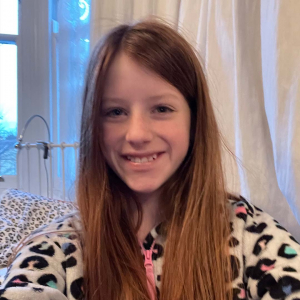
What got you into writing songs? I’ve been writing songs since the beginning of Lockdown – when I was about 9. At that time, songwriting helped to keep me entertained and made sense of the emotions I was feeling.
What does songwriting mean to you? Songwriting helps me to deal with the stresses of life. It makes me feel relieved and relaxed. Without it I would feel trapped. Songwriting allows my emotions to come out.
What is your favourite part of the song writing process? I love it when an idea, lyrics and music come together. Sometimes this happens several times during the song-writing process for example when a single verse is completed and then right at the end when the whole song is finished.
How do you usually start a song? How do you find that spark? I can’t be forced to write a song. Something has to trigger an idea such as a particular feeling or experience. If I’m doing an activity that I don’t have to think about – such as walking or skiing – songs just come into my head because there is space in my mind.
Describe your setup that you used to write your #SAYS22 entry. My entry was written in my kitchen at home on my own. I was sitting at the piano with my book where I write my songs.
Who would be your dream artist/writer/band to collaborate with? For song writing, my dream collaborators would be: Cat Burns, Claire Rosinkranz or Olivia Rodrigo.
What would you say to someone aged 8-18 who is thinking about entering the Song Academy Young Songwriter competition next year? Do you have any tips for them? If the entrant has written multiple songs, I would advise them to play through all of their songs, record them, listen back, maybe play them to family and friends to get other opinions but then go with their own gut feeling. Don’t listen too much to other people! Once a song has been chosen, explore the lyrics and check that they are exactly how you want them to be. Be prepared to adapt the lyrics – especially if you wrote the song a while ago.
What are your favourite other entries from this year’s competition? Who out of the other entrants (it doesn’t have to be a finalist!) would you like to collaborate with? My favourite entries from the 8-12 category are: ‘Beautiful Stranger’ by Sambelle Prince, ‘Find a Place’ by Nelly Bingham, ‘Fried’ by Uma Martin and ‘Our Secret Heaven’ by Greta Kill. I would happily collaborate with all of these singers.
What do you like about the Song Academy Young Songwriter competition? I like the big age range from 8-18 – it’s really inclusive. I also like the way you can listen to all of the other entries – it’s inspiring. Finally, I like the way anyone can enter.
FREE – JOHNNY BEAU, 12 YEARS OLD
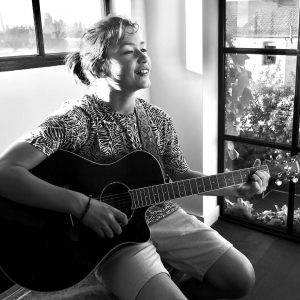
What got you into writing songs? I started to write songs when I was about 9. I preferred making my own stuff up as I found it really hard to learn to read music.
What does songwriting mean to you? It’s just how I can express myself. Also, I have some friends that I jam with every week and we share ideas and it’s a great way of spending time.
What is your favourite part of the song writing process? Finding that perfect chord that matches the meaning of the word.
How do you usually start a song? How do you find that spark? I start with chord progressions. My lyrics come to my mind all the time. There’s lots of bits of paper in my room full of random ideas.
Describe your setup that you used to write your #SAYS22 entry. I usually write songs at the piano but this was the first one I did with guitar.
Who would be your dream artist/writer/band to collaborate with? Kate Bush or Joni Mitchell
What would you say to someone aged 8-18 who is thinking about entering the Song Academy Young Songwriter competition next year? Do you have any tips for them? It’s so fun to hear all the other songs from others entrants and get inspired by them.
What are your favourite other entries from this year’s competition? Who out of the other entrants (it doesn’t have to be a finalist!) would you like to collaborate with? I liked the song turn back time- I liked the way she used her voice.
What do you like about the Song Academy Young Songwriter competition? For me the highlight was playing at the showcase last year it was an amazing event.
WHAT COOKIES MEAN TO ME – GLEBE ACADENT YEAR 3 COOKIE MONSTERS
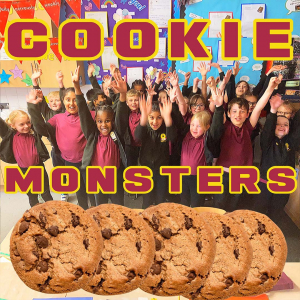
What got you into writing songs? Listening to songs that we like, and our music teacher Mr Brom who is always making up songs.
What does songwriting mean to you? It means fun, epic-ness, joy, inspiration and excitement.
What is your favourite part of the song writing process? Making up the chords and words, and singing it.
How do you usually start a song? How do you find that spark? By listening to music that we like and making up our own version of it.
Describe your setup that you used to write your #SAYS22 entry. We brainstormed our lyrics on whiteboards, and then tried out chords on the ukulele until we found something we liked the sound of, then sang our words over the top.
Who would be your dream artist/writer/band to collaborate with? Jason Derulo, Arianna Grande, Becky Hill, Ava Max, Lady Gaga, Mark Feehily, Beyonce, Billie Eilish and the football players Ronaldo and Lewandowski.
What would you say to someone aged 8-18 who is thinking about entering the Song Academy Young Songwriter competition next year? Do you have any tips for them? Write about something that inspires you. Think about your favourite things and write about them.
What are your favourite other entries from this year’s competition? Who out of the other entrants (it doesn’t have to be a finalist!) would you like to collaborate with? We liked the other Year 3 song about ‘Money Isn’t Everything’.
What do you like about the Song Academy Young Songwriter competition? It was fun! Thank you for the opportunity.
MY FATE – NIKOLAS ROCHE
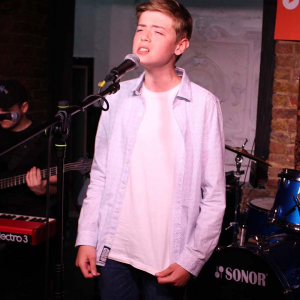
What got you into writing songs? Honestly I was kind of forced into it at first as my mum made me try it at 7 years old but now I feel like song writing is something I will do myself, it doesn’t feel like a burden.
What does song writing mean to you? It feels like a way to escape because you can say whatever you want and it feels amazing when you get a good rhyme.
What is your favourite part of the song writing process? Writing the lyrics is my favourite part and kind of the thing that gets me started at first which is weird because many people prefer to start with a melody…
How do you usually start a song? How do you find that spark? I usually start with a couple of words, then I come up with a melody for those and try to make them rhyme together and fit well as if they are not forced.
Describe your setup that you used for #SAYS22 entry? I used our basement floor because not many people go there and I needed a place where I could listen and not be disturbed.
Who would be your dream artist/writer/band to collaborate with? I would really like to collab with lil baby because he’s probably the best rapper right now and makes some really good lyrics or maybe iann dior because he has a bit more of a melody and sings a bit more and has done collabs with MGK but collaborating with lil tjay and polo g would also be cool.
What would you say to someone aged 8-18 who is thinking about entering the Song Academy Young Writer Competition next year? Do you have any tips for them? I say just do it, it might feel hard at first but once you get into that rhythm it becomes something you want to do. A tip is just you can do anything you want. Now I feel like song writing is a thing I want to do and I want to come up with these lyrics and melody, I want to finish this song.
What are your favourite other entries from this year’s competition? Who out of the other entrants would you like to collaborate with? Find You – by Fire Flies; Cool song. The two voices sound almost sad but the chords sound bright and happy!
BEAUTIFUL STRANGER – SAMBELLE PRINCE
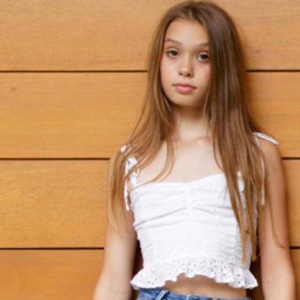
What got you into writing songs? I had already loved to sing but when I heard about being able to write my very own songs, I was immediately intrigued.
What does songwriting mean to you? To me, song writing means letting your imagination take control.
What is your favourite part of the song writing process? My favourite part is coming up with the topic to write about.
How do you usually start a song? I usually start a song by thinking about things I have experienced or things that are personal to me and use that as my topic. How do you find that spark? I find that spark by just writing down my thoughts and turning them into lyrics.
Describe your setup that you used to write your #SAYS22 entry. I wrote it from home
Who would be your dream artist/writer/band to collaborate with? I would collaborate with Olivia Rodrigo or BTS.
What made you enter #SAYS22? I wanted to challenge myself and see how far my songs could take me. How did you hear about it? I actually heard about it from the song academy and then told my mom I wanted to sign up.
What would you say to someone aged 8-18 who is thinking about entering the Song Academy Young Songwriter competition next year? I would tell them to definitely have a go and try it out. Do you have any tips for them? I would say to follow your heart and to have fun with writing the lyrics.
What do you like about the Song Academy Young Songwriter competition? I like the fact that even if you don’t win, they help you stand back up again and keep going until you reach your goals.
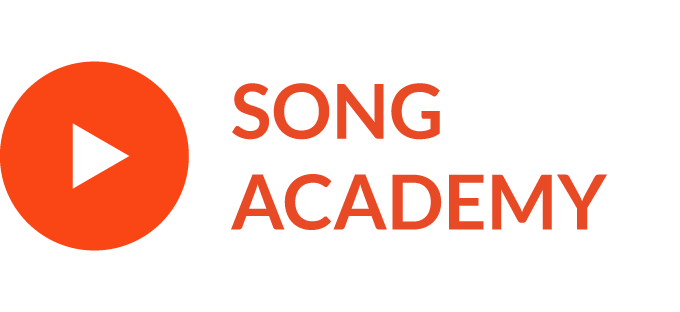
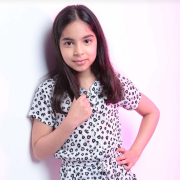
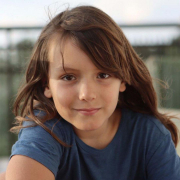
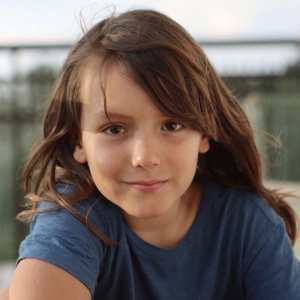 What inspired you to write your finalist song? I wrote this song in a moment of great sadness that I don’t know where it came from, but I knew that I couldn’t let myself go to sadness, that I had to try to be happy. I often play in moments of reflection, playing whatever I feel in my head is something I often do and it helps me to find calm within myself.
What inspired you to write your finalist song? I wrote this song in a moment of great sadness that I don’t know where it came from, but I knew that I couldn’t let myself go to sadness, that I had to try to be happy. I often play in moments of reflection, playing whatever I feel in my head is something I often do and it helps me to find calm within myself.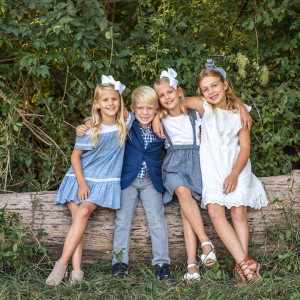 What inspired you to write your finalist song? I love Christmas and being around my family. I wanted to write a song about being together and how happy I am with them at Christmastime.
What inspired you to write your finalist song? I love Christmas and being around my family. I wanted to write a song about being together and how happy I am with them at Christmastime.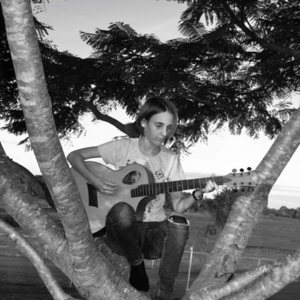 What inspired you to write your finalist song? My song was inspired by being in a toxic friendship and how much emotional impact it can have on young people. Rising from the fire was a song I wanted to help empower people in the same situation to get back up and recognise that they are not alone.
What inspired you to write your finalist song? My song was inspired by being in a toxic friendship and how much emotional impact it can have on young people. Rising from the fire was a song I wanted to help empower people in the same situation to get back up and recognise that they are not alone.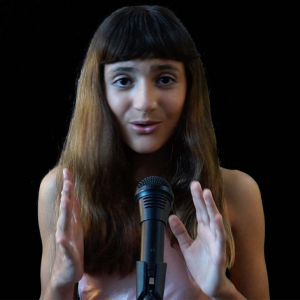 What inspired you to write your finalist song? I have been deeply disappointed by the news on the TV about what happening with the war between Russia and Ukraine. I knew that if I couldn’t help physically, but I should help spiritually. Of course, donating to Ukraine would be great, but also showing people of Ukraine that all of us care would be important. So, I wrote this song to help all of us see that instead of war should be peace and harmony and love should always conquer hate. I hope that this song will bring awareness that even young people care about current situation and praying for peace in the world. The bridge in my song is stating “Humans! Peace is in YOUR hands!” Honestly, I wanted to write “Putin!…’, but it would be too political and not poetical.
What inspired you to write your finalist song? I have been deeply disappointed by the news on the TV about what happening with the war between Russia and Ukraine. I knew that if I couldn’t help physically, but I should help spiritually. Of course, donating to Ukraine would be great, but also showing people of Ukraine that all of us care would be important. So, I wrote this song to help all of us see that instead of war should be peace and harmony and love should always conquer hate. I hope that this song will bring awareness that even young people care about current situation and praying for peace in the world. The bridge in my song is stating “Humans! Peace is in YOUR hands!” Honestly, I wanted to write “Putin!…’, but it would be too political and not poetical.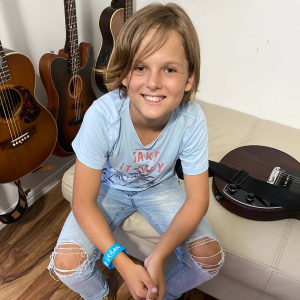 What inspired you to write your finalist song? I love playing guitar and writing songs. But, it’s hard to write songs when you are just 11 or 12yrs old as you haven’t really had any heartbreaks or anything yet! So this song I decided to write from someone else’s perspective. Someone has done something wrong and they are on the run! They are looking for forgiveness but feel they can’t go back.
What inspired you to write your finalist song? I love playing guitar and writing songs. But, it’s hard to write songs when you are just 11 or 12yrs old as you haven’t really had any heartbreaks or anything yet! So this song I decided to write from someone else’s perspective. Someone has done something wrong and they are on the run! They are looking for forgiveness but feel they can’t go back.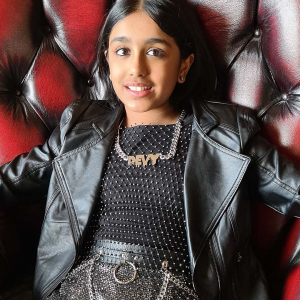 What inspired you to write your finalist song? I wrote this song about an imaginary girl, who I describe as a ‘Bubblegum girl’, who is overly-positive about everything. The idea behind the song is that ‘it is okay and perfectly normal to feel sad and express your emotions’.
What inspired you to write your finalist song? I wrote this song about an imaginary girl, who I describe as a ‘Bubblegum girl’, who is overly-positive about everything. The idea behind the song is that ‘it is okay and perfectly normal to feel sad and express your emotions’.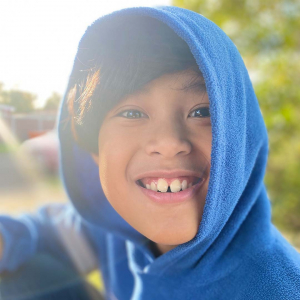 What got you into writing songs? I was inspired by my big brother.
What got you into writing songs? I was inspired by my big brother.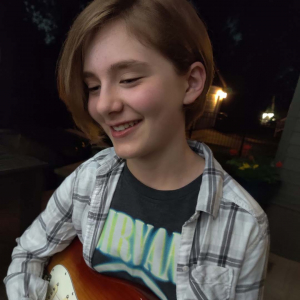 What inspired you to write your finalist song? I was thinking about some times when I was mean to my sister. Around Christmas time I thought I would write a song for her to let her know how much I love her.
What inspired you to write your finalist song? I was thinking about some times when I was mean to my sister. Around Christmas time I thought I would write a song for her to let her know how much I love her.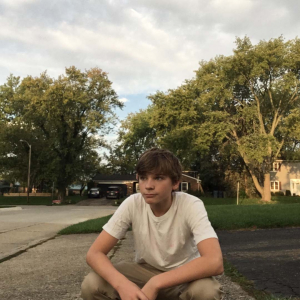 What inspired you to write your finalist song? I honestly didn’t really know at first, but now that I think about it I feel that I understand why I wrote it. This song came together really quickly when I wrote it on the piano really early in the morning, so at the time I wasn’t thinking about the process which I felt made it such a great song. But, now that I look back at the lyrics I feel like I wrote it about having a relationship with someone and just showing what the outcome would look like, and then reassuring them by saying don’t worry I won’t go anywhere.
What inspired you to write your finalist song? I honestly didn’t really know at first, but now that I think about it I feel that I understand why I wrote it. This song came together really quickly when I wrote it on the piano really early in the morning, so at the time I wasn’t thinking about the process which I felt made it such a great song. But, now that I look back at the lyrics I feel like I wrote it about having a relationship with someone and just showing what the outcome would look like, and then reassuring them by saying don’t worry I won’t go anywhere.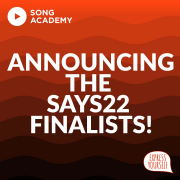
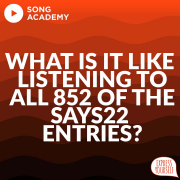
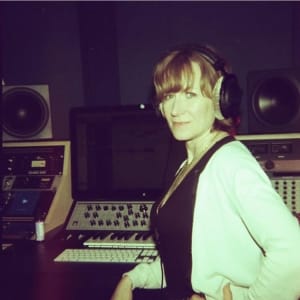 There were hundreds of songs to listen to, a fairly daunting task as judging them requires my full attention for each and every song. Some songs simply invite me to listen to them and others might take a few listens before I fully realise their value. Sometimes songs make us listen again and again and we still can’t exactly say why. There are no steadfast guidelines for what makes a song great, but one thing they all have in common is an ability to connect with the listener. Young people have a unique way of expressing themselves, they are a new generation experiencing life in the most vivid and visceral way, so if a young artist can capture that lucid state of mind with musicality and integrity, they have every chance of writing a great song.The lyrical subjects once again varied enormously. I can’t say there weren’t a few songs about the end of the world, such is the anxiety of the youth regarding climate change and war. Also there was a preoccupation with how phones erode family life, and how unkind social media can be. But in more cheerful news, there were also many songs about love, nature, politics, gender politics, families and happiness to name a few topics. Whatever the reason for writing a song, there is no doubt that expressing feelings and turning them into a song can be empowering for young people.
There were hundreds of songs to listen to, a fairly daunting task as judging them requires my full attention for each and every song. Some songs simply invite me to listen to them and others might take a few listens before I fully realise their value. Sometimes songs make us listen again and again and we still can’t exactly say why. There are no steadfast guidelines for what makes a song great, but one thing they all have in common is an ability to connect with the listener. Young people have a unique way of expressing themselves, they are a new generation experiencing life in the most vivid and visceral way, so if a young artist can capture that lucid state of mind with musicality and integrity, they have every chance of writing a great song.The lyrical subjects once again varied enormously. I can’t say there weren’t a few songs about the end of the world, such is the anxiety of the youth regarding climate change and war. Also there was a preoccupation with how phones erode family life, and how unkind social media can be. But in more cheerful news, there were also many songs about love, nature, politics, gender politics, families and happiness to name a few topics. Whatever the reason for writing a song, there is no doubt that expressing feelings and turning them into a song can be empowering for young people.